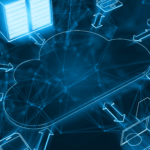Charities, non-profits, schools and other good causes are particularly vulnerable to cybercrime. A combination of wanting all your money to go towards your cause rather than on IT, lack of up-to-date skills and ever changing threats are things we all have to face.
Just because you want all your efforts to benefit your cause, doesn’t mean you have to leave yourself vulnerable.
There are lots of little things you can do to improve your cyber security that don’t cost anything and won’t require technical knowledge.
We’re going to share some simple, actionable steps anyone can take to protect their good cause from cybercrime.
Online security for charities, non-profits and good causes
The following tips are the very basics. They aren’t enough to protect you from every threat out there but they will all contribute to keeping your data, teams and good cause safe.
Some of these tips will require you to log into your router. Your login details should be on a sticker on the side or with the manual that came with it.
Change your router username and password
If you haven’t changed your router username and password since it was set up, you really should. Leaving the default login for the router is a severe vulnerability, one that many small organisations suffer from.
The default logins for routers are very well known and make it easy for someone on the outside to log in and change settings, or worse!
Log into your router and change the administrator username and password right away. It takes less than a minute and will close a significant loophole in your network.
Change your WiFi password
If you use WiFi, you should also change the default WiFi password, for the same reasons you change the router login.
Anyone can find out the default login and use your WiFi for free. More nefarious users of your WiFi could also find their way into the computers using it and potentially access data, so you definitely need to change it.
You should find the WiFi password on the WiFi page of the router. If your wireless network uses the charity or organisation’s name, change that too. You don’t want to advertise whose network it is!
Use your router firewall
You will most likely use a router to access the internet. Whether it’s a third-party router or one provided by your ISP. Either should have a firewall built in.
We recommend you make sure that firewall is activated. We also recommend using a software firewall on all computers if you don’t have the resources for a dedicated hardware firewall.
Always use a software firewall on devices
Good cyber security is about defence in depth. That means layers of protections to try to keep people out.
While you have a firewall running on your router, you should also have them running on every computer. That is until you can afford dedicated appliances anyway.
There are some very good free firewalls out there good causes should be able to use.
Otherwise, there are plenty of commercial firewalls out there for a reasonable cost, we can help you with advice around this and offer some cost-effective options.
Always use antivirus and malware scanner
Antivirus and malware scanners are different things but some security suites do both.
Both should be installed on all computers, laptops, tablets and phones you use.
Phones and tablets are less at risk than computers but are still vulnerable. Apple devices are also vulnerable, no matter what the media tells you.
Protect every device you use by using antivirus and a malware scanner. This is an excellent resource for selecting antivirus and malware scanners.
Use strong passwords for everything
Despite having been around forever, the humble password is still a prime way to protect online accounts. The stronger the password, the strong the protection.
While no password is perfect, the more complicated you make it, the longer it will take to crack. This should be enough to put off anyone but the most determined attacker.
So how do you remember dozens of very complicated passwords?
You use a password manager. These are applications that help generate and store passwords and entire logins. Use one of these and all you have to do is remember a single password to access the password manager.
Back up your data
No security system is perfect and even the most secure network is still vulnerable. Therefore, while we always hope for the best, we must also plan for the worst.
Data backups form part of that plan.
Data backups can be made daily, weekly or monthly and be full backups or incremental.
To be truly effective, a data backup should take two copies. One can stay on site for convenient restoration. Another should be stored offsite in case anything happens to the building. That could be in the cloud or at a disaster recovery location.
Only when you have these two copies can you consider your data to be truly backed up!
Those are the very basics of cyber security. Steps everyone, everywhere should take to help keep their devices, networks and data safe.
They aren’t a complete solution and are no replacement for professional help and the proper appliances, but they are a start!
As always, we’re here for help, advice and solutions to help keep you protected. You can call our team on 01225 776555 or email us here.




